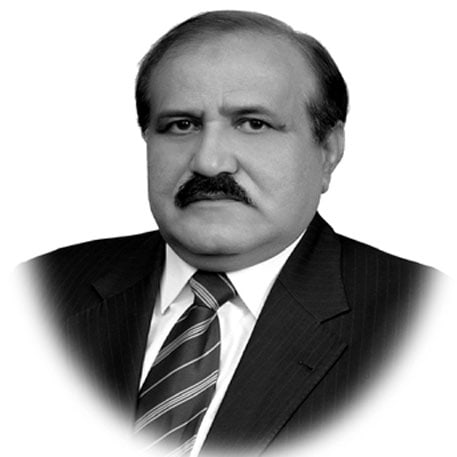Afghanistan at knife edge
IN Afghanistan, triumph and tragedy come together. In 1988, this happened when the (former) Soviet Union withdrew as a result of heroic armed struggle of Afghan Mujahideen.
Now its replica is on replay when the US and its NATO allies are withdrawing their troops at much faster pace than expected.
This is the triumph and truly belongs to Afghan Taliban who virtually fought bare handedly and single-handedly regardless of what it entailed in blood and wait.
Along with it, tragedy is also walking in supersonically rather at Mach two and Afghan Taliban cannot absolve them of its larger burden.
Today, disorder, violence, crimes and drugs, civil war and refugees and its spill over effected in the neighbourhood are not only being predicted conclusively but have already started gripping its landscape furiously much faster than visualized.
Admittedly, after an armed struggle against foreign occupation, no bed of roses awaits a nation. No occupier builds a nation as the US did.
It only did a scrappy development and institutional building as an ad-hoc arrangement to serve its own ends and purposes.
Consequently, there lies forbidding difficulties but there is also an accompanying hope. In the aftermath, it is own leadership which does the reconstruction and development. Out of the difficult times, new sources of energy and solution emerge.
In Afghanistan, the situation is found inverse when assessed coupled with its past history. This does not provide comfort and assurance. The spectre of miseries, conflict and war is overbearing.
There is a definite requirement of a unifying force capable of showing leadership to pull the situation from knife edge to right direction. All eyes are fast setting on Afghan Taliban though in disbelief until they come of age.
They are indeed triumphant and their taking over of districts and major cities is also natural to assume overall control of the country, however, after achieving a position of strength in sufficient, they need to show magnanimity and consideration in order to establish a broad-based inclusive government. Afghanistan needs to be at peace with itself and the world. The reconciliation is the key.
The stalled intra-Afghan negotiations need to be revived vigorously to work out a power sharing formula, formulate a workable constitution and determine the future government set-up including state institutions.
State machinery is a must to run the country. The ragtag militias are no substitute of a regular Army.
Contrarily, Afghanistan would not only fall prey to a civil war but would also continually render it a hotbed of international intrigues and pulls.
The choice is with Afghans particularly, Afghan Taliban however, outside world especially, its neighbourhood, cannot rest content on slim possibility of a changed approach by Taliban against high probability of Afghanistan, being a permanent and constant bugbear.
They need to take fresh stock of the situation to preempt negative fallout flowing from there. First one has already visited Pakistan.
It was demand of the US for military bases inside Pakistan to carryout anti-terrorism ops in Afghanistan following its withdrawal.
This put Pakistan in invidious position and inevitably, it has to be dismissed out rightly however, it is neither cost free nor pain free.
It is unknown how much amount of layered diplomacy it would take to offset its backlash. Amid chaos, anarchy and instability, there is an increased likelihood of terrorism and fresh exodus of refugees across Afghan border, leave aside voluntary return of three million Afghan refugees, already present in Pakistan.
This calls for a stringent border control. It is fortunate that 90% of the fencing of border is complete however, a shutter down for new refugees may have implications of its own.
Pakistan may have to confront a challenge of recognition of Afghan government if Taliban takes over Kabul unilaterally by force.
This won’t be easy this time as back in 1990s. Apart from international community, a large part of Afghan civil society and people do not subscribe rather opposed to an orthodox rule of Afghan Taliban at gun point.
A large number of them have also applied for visas abroad which may turn out to be an embarrassing reality for Afghan Taliban in Kabul.
Pakistan has said that it would respect decision of Afghan people nevertheless, this is yet another potential migraine which Pakistan will have to deal with.
The CPEC could not be optimized to its full potential until there is peace and stability in Afghanistan.
Instead instability and engineered interference across Afghan border may impede its progress and operation.
This is another dimension for Pakistan and China to cater for. Afghanistan as a strategic depth to Pakistan was a misconception in exuberance.
There was no plausible reason to conceive and keep it. PM Imran Khan has said rightly that we do not wish for strategic depth in Afghanistan.
Afghanistan is a sovereign country and needs to be taken as such. This ought to be a reset which both countries have to follow immaculately.
Pakistan has stood with Afghans in their ordeals. Pakistan housed more than three million Afghan refugees ungrudgingly when they were fighting against Soviet occupation. It helped Afghan freedom fighters in every way possible.
Even during their conflict with the US, Pakistan continued its support in whatever way it could do.
It suffered colossally at the hands of terrorism across Afghan border but did not budge from its policy of good neighbourliness. Pakistan is always liberal in matters related to Afghan Transit Trade.
It is good that a vast reservoir of goodwill exists between the two countries but its bedrock ought to be based upon reciprocity. It is an imperative to forge a sustainable equal relationship between the two countries.
— The writer, a retired Lt Col, is a senior columnist based in Islamabad.










